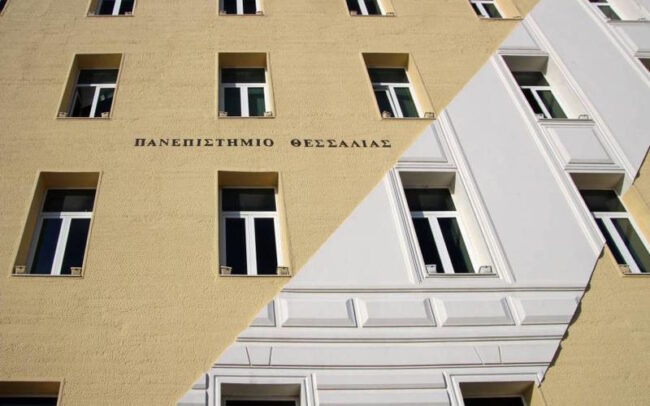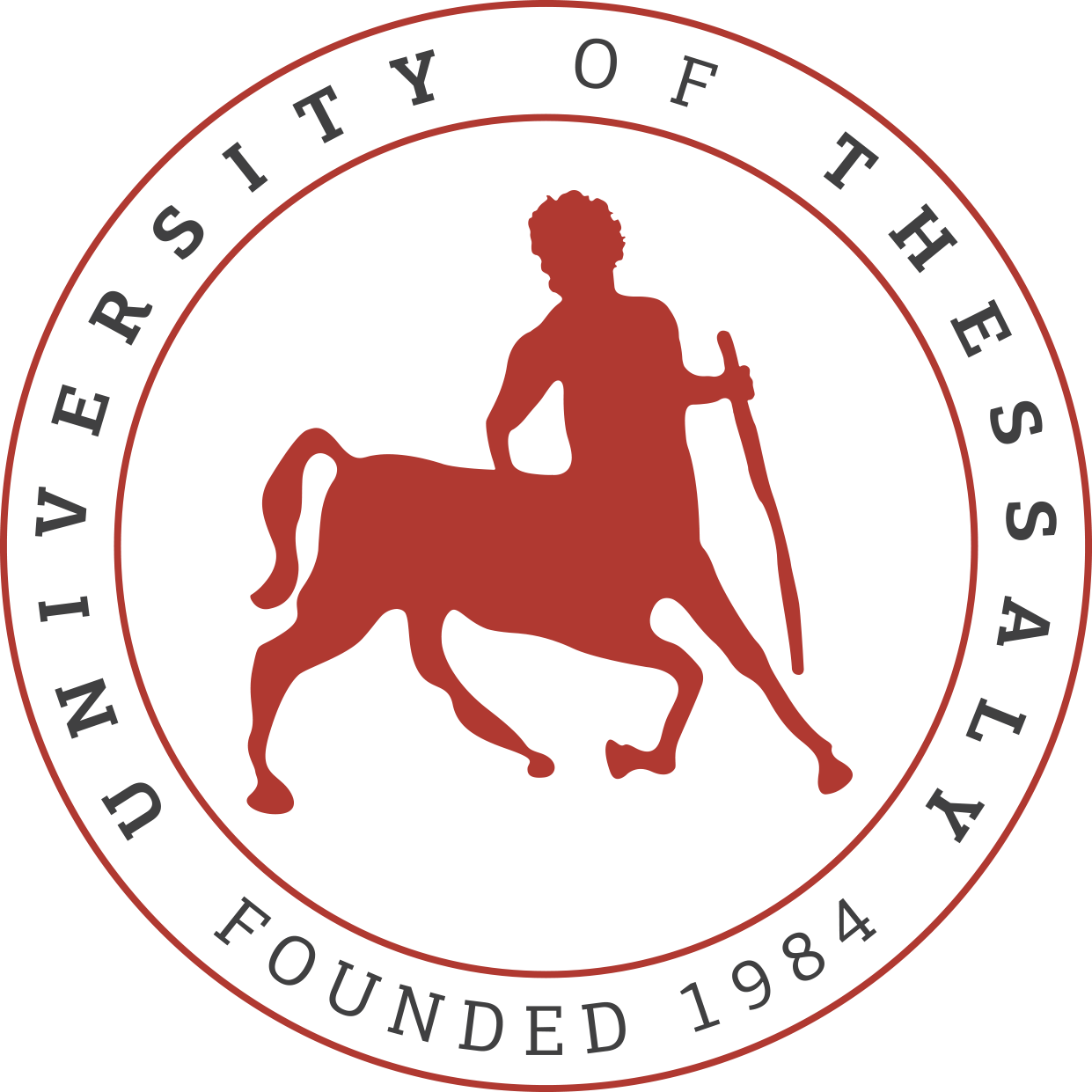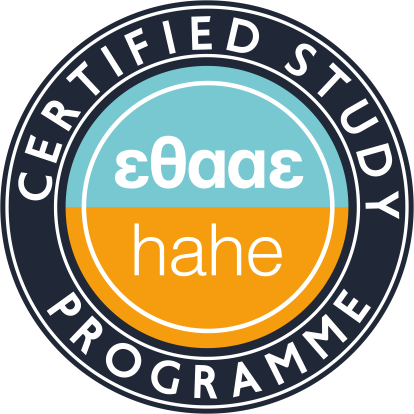3rd Semester – Seminar: Animation processes in educational environments

3rd Semester – Seminar: Animation processes in educational environments
ECTS Units: 6
Professor: Katsaridou Martha
1. COURSE CODE S6-X
SEMESTER OF STUDY
C SEMESTER
COURSE TITLE
ANIMATION PROCESSES IN EDUCATIONAL ENVIRONMENTS
SELF-ENDED TEACHING ACTIVITIES
WEEKLY TEACHING HOURS 3
CREDIT UNITS 6
COURSE TYPE MANDATORY
PREREQUISITE COURSES:
LANGUAGE OF TEACHING and EXAMINATION: GREEK
THE COURSE IS OFFERED TO ERASMUS STUDENTS
COURSE WEBSITE (URL)
https://eclass.uth.gr/courses/ECE_P_111/
2. LEARNING OUTCOMES
Learning results
Upon successful completion of the course, the student will be able to:
- To understand that animation processes inevitably connect learning with personal experience.
- To recognize the content, methodological features and animation processes followed in different thematic fields of its application (eg theater in education, intercultural education, museum education, adult education).
- To develop characteristics of an animator, so as to connect the content with the experience and to propose learning activities in relation to the wishes, needs and knowledge of his/her students.
- To plan, organize and implement animation actions in the educational practice as a method of strengthening and promoting the learning processes.
- To evaluate the animation actions he has implemented, to reflect on their effectiveness and to be able to redesign them.
- General Skills
Search, analysis and synthesis of data and information, using the necessary technologies
- Adaptation to new situations
- Decision making
- Independent work
- Teamwork
- Project planning and management
- Respect for diversity and multiculturalism
- Criticism and self-criticism
- Promotion of free, creative and inductive thinking
3. COURSE CONTENT
The seminar will approach issues related to the content, forms and techniques of animation both in relation to the development of various game activities and more comprehensive thematic activities/workshops. Animation in the context of theater in education, visual activities, museum education and intercultural activities, etc. are indicative areas that will be developed in the seminar, both theoretically and experientially/interactively. In the same direction, issues related to the role and characteristics of the animator, the concept of creativity, active listening and cooperation will be approached, while examples of animating various actions from both the Greek and international areas will be studied.
Indicative thematic sections:
- Expression and creativity
- Animation and the role of the animator
- Group dynamics
- Theater-pedagogical approaches
4. TEACHING AND LEARNING METHODS – ASSESSMENT
DELIVERY METHOD
Face to face
USE OF INFORMATION AND COMMUNICATION TECHNOLOGIES
Use of PowerPoint, Video, music.
Posting the course material in the e-class.
Communication with students via email.
TEACHING ORGANIZATION
Activity
Semester Workload
Short Lectures
20 hours
Experiential workshop
80 hours
Interactive teaching
10 hours
Presentations: animating workshops in groups & Writing assignments
40 hours
STUDENT EVALUATION
Formative assessment: Presentations – animating experiential activities/workshops in groups.
Final assessment: Group written work & individual critical evaluation of the lived experience.
5. Suggested Bibliography
- Boal, Α. (2013). Θεατρικά παιχνίδια για ηθοποιούς και για μη ηθοποιούς, Θεσσαλονίκη: σοφία.
- Θωίδης, Ι. (2007). Εμψύχωση: Κοινωνικοπολιτιστική,κοινωνικοεκπαιδευτική δράση στο σχολείο και στον ελεύθερο χρόνο. Ερευνώντας τον κόσμο του παιδιού, 7, 41-58.
- Κόκκος, Α. (2003). Ο μετασχηματισμός των στάσεων και ο ρόλος τουεμψυχωτή. Στο Βεργίδης, Δ. (επιμ.), Εκπαίδευση Ενηλίκων: Συμβολή στηνεξειδίκευση στελεχών και εκπαιδευτών, Αθήνα: Ελληνικά Γράμματα, 195-223.
- Μουμουλίδου, Μ. &Ρεκαλίδου, Γ. (επιμ.)(2010). Μικρές Ομάδεςστην Εκπαίδευση. Παιδαγωγικές, Μαθησιακές Εμψυχωτικές Προσεγγίσεις,Αθήνα: Τυπωθήτω, 191-202.
- Μπακιρτζής, Κ. &Σλαυκίδης, Γ. (2019). Η εμψύχωση ομάδων και οιεφαρμογές της. Στο Ράπτης Θ. & Κόνιαρη, Δ. (επιμ.), Μουσική Εκπαίδευσηκαι Κοινωνία: νέες προκλήσεις, νέοι προσανατολισμοί. Πρακτικά 8ουΣυνεδρίου της Ε.Ε.Μ.Μ., Θεσσαλονίκη: Ε.Ε.Μ.Μ., 533-541.
- Μπακιρτζής, Κ. (2003). Η Δυναμική της Αλληλεπίδρασης στην Επικοινωνία,Αθήνα: Gutenberg.
- National Advisory Committee on Creative and Cultural Education (1999). AllOur Futures: Creativity, Culture & Education. Sudbury: DfEE.
- Neelands, J. & Goode, T. (2000). Structuring Drama Work, Cambridge: Cambridge University Press.
- Poulter, C. (1987). Playing the Game. Basingstoke: Macmillan Education.
- Robinson, K. (2011). Για μια επανάσταση δημιουργικότητα. Αθήνα: Εν πλώ.
Πρόσθετη Βιβλιογραφία στην eclass του μαθήματος.


